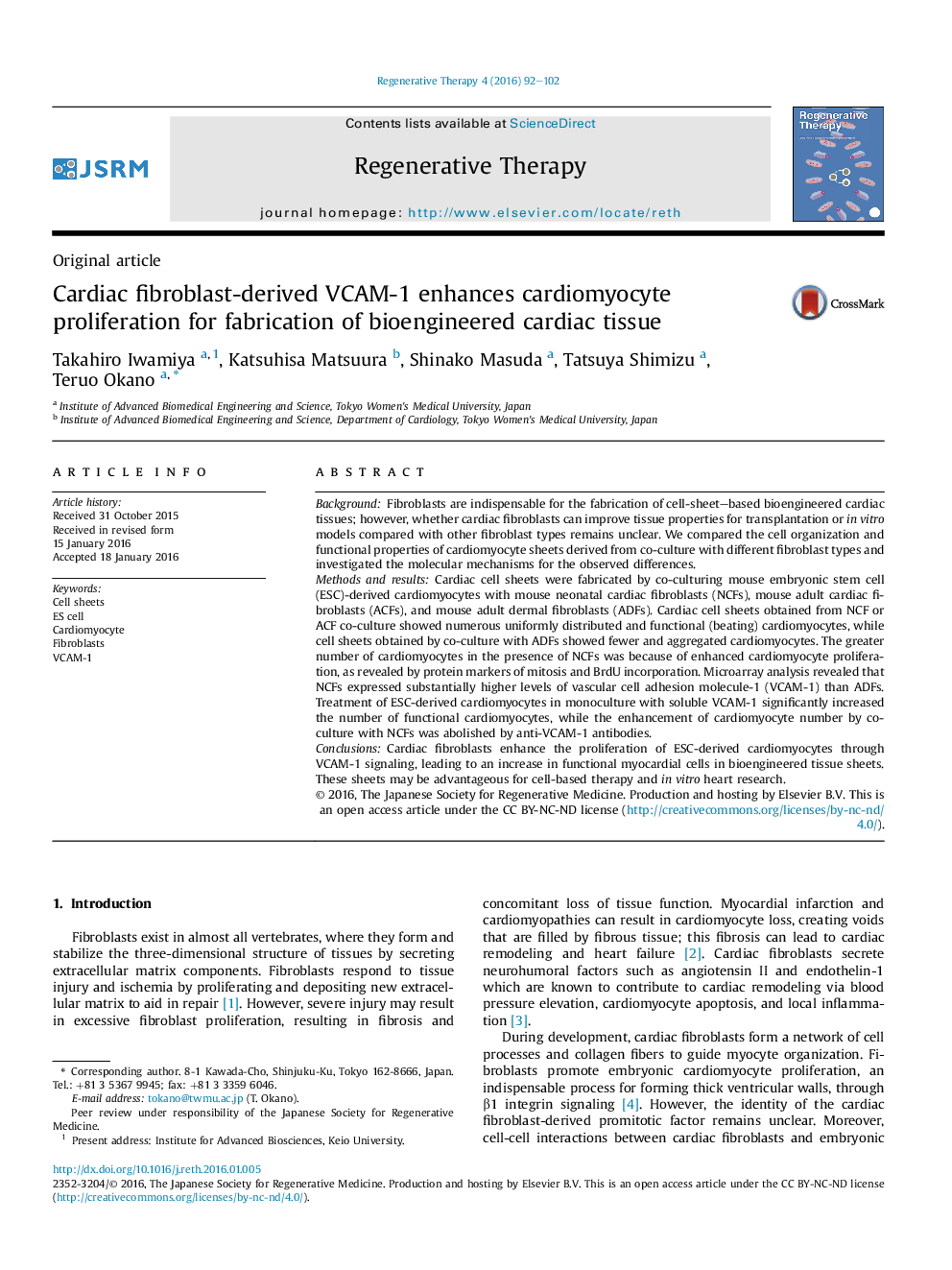| Article ID | Journal | Published Year | Pages | File Type |
|---|---|---|---|---|
| 2022322 | Regenerative Therapy | 2016 | 11 Pages |
â¢The existence of fibroblasts is indispensible for the fabrication of cardiac cell sheets.â¢Cardiac fibroblasts, but not dermal fibroblasts, induce the proliferation of mouse ES cell-derived cardiomyocytes through cardiac fibroblasts-derived VCAM-1.â¢Cardiac fibroblast-derived VCAM-1 is critical for fabricating functional bioengineered cardiac tissues.
BackgroundFibroblasts are indispensable for the fabrication of cell-sheet-based bioengineered cardiac tissues; however, whether cardiac fibroblasts can improve tissue properties for transplantation or in vitro models compared with other fibroblast types remains unclear. We compared the cell organization and functional properties of cardiomyocyte sheets derived from co-culture with different fibroblast types and investigated the molecular mechanisms for the observed differences.Methods and resultsCardiac cell sheets were fabricated by co-culturing mouse embryonic stem cell (ESC)-derived cardiomyocytes with mouse neonatal cardiac fibroblasts (NCFs), mouse adult cardiac fibroblasts (ACFs), and mouse adult dermal fibroblasts (ADFs). Cardiac cell sheets obtained from NCF or ACF co-culture showed numerous uniformly distributed and functional (beating) cardiomyocytes, while cell sheets obtained by co-culture with ADFs showed fewer and aggregated cardiomyocytes. The greater number of cardiomyocytes in the presence of NCFs was because of enhanced cardiomyocyte proliferation, as revealed by protein markers of mitosis and BrdU incorporation. Microarray analysis revealed that NCFs expressed substantially higher levels of vascular cell adhesion molecule-1 (VCAM-1) than ADFs. Treatment of ESC-derived cardiomyocytes in monoculture with soluble VCAM-1 significantly increased the number of functional cardiomyocytes, while the enhancement of cardiomyocyte number by co-culture with NCFs was abolished by anti-VCAM-1 antibodies.ConclusionsCardiac fibroblasts enhance the proliferation of ESC-derived cardiomyocytes through VCAM-1 signaling, leading to an increase in functional myocardial cells in bioengineered tissue sheets. These sheets may be advantageous for cell-based therapy and in vitro heart research.
